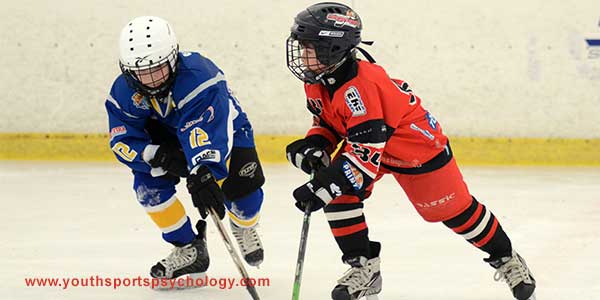
How Athletes Can Deal with Coach Criticism
It can be hard for your young athletes to take criticism productively from coaches. Kids often don’t interpret communication from coaches correctly because of the delivery or the emotion with which the feedback is conveyed.
When their coaches criticize young athletes, the kids may focus on only the negative part of the message, or miss the message entirely.
This is especially true if the criticism is done in an excessively loud manner. Kids can interpret loudness as overly negative.
It may look like this: A coach yells at young soccer players, “What are you doing? You’re moving up too far!”
Your sports kids might hear “You can’t seem to do anything right!” Later, if your young athletes gets pulled from the game and the coach says, “You’re not making any of the right passes,” your sports kids might be hearing “You are not good enough for this team.”
Some good coaches are not good communicators, and many are not even positive coaches.
These coaches may think they are trying to motivate kids, but don’t understand how to communicate well enough to effectively be motivational. Instead, your young athletes will often take harsh criticism and demeaning language personally.
While young athletes can’t control the message or how the message was presented, they can sort through language and tone and capture something of value that they can use to improve their game.
To do this, they must interpret the message objectively, ignore the negativity or harshness of the tone and look for the learning message–a message that will help them improve.
For example, their coach may yell out, “How is it possible to make the same dumb mistake of not clearing the ball?”
Encourage your sports kids to avoid internalizing the word “dumb.” They should not take this feedback personally–as a hit on their person. You want them to see it for what it is–feedback about one play in the game.
Instead, they should ask themselves an objective question and answer with an objective answer.
“Am I dumb? No, I am a solid defender but I can always improve. I should always remember to immediately clear the ball when given the opportunity.”
The goal of this exercise is for your athletes to avoid taking the criticism personally and to get some value from it that they can apply in practice and thus improve.
Related Articles on Youth Sports:
- Help Young Athletes Turn Criticism into Motivation
- Constructive Criticism Tips for Young Athletes
- How Sports Kids Deal with Constructive Criticism [Interview]
*Subscribe to The Sports Psychology Podcast on iTunes
*Subscribe to The Sports Psychology Podcast on Spotify
The Composed Sports Kid

“The Composed Sports Kid” audio and workbook digital download program for young athletes and their parents or coach helps kids cope with frustration and anger in sports. Help your sports kids learn how to manage expectations and let go of mistakes so they can keep their head in the game.
The Composed Sports Kid system is really two programs in one–one program to train parents and coaches how to help their kids practice composure, and one program that teaches young athletes–ages 6 to 13–how to improve composure, let go of mistakes quickly, have more self-acceptance, and thus enjoy sports more!

I liked how you mentioned that you should tell your kids to not internalize bad feedback from coaches. My wife and I are wanting to put our son into sports and we were wondering how we could make sure he gets the right lessons taught to him. I’ll be sure to tell her that we should make sure he doesn’t internalize anything negative from his coach.